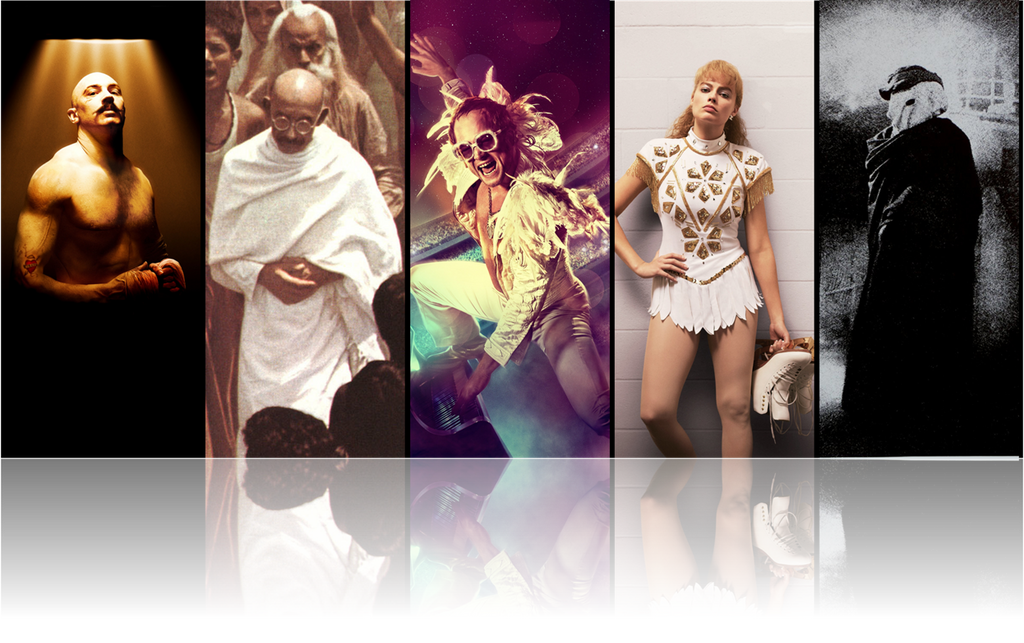
The staid old biopic has always been one of my least favourite movie genres. Just the word biopic screams “prestige picture” and “Oscar bait” to me, and with good reason - you have to go all the way back to 2007 to find a roster of Academy Award Best Picture nominees that didn’t feature at least one.
My problem with the genre is that the biographical film often makes the mistake of trying to cram a whole life into one two hour stint. It’s impossible to capture the complexities and nuances of a human being in the runtime of a movie, which is why so many biopics end up feeling under-cooked and a bit shallow.
That said, there are good ones out there. Here are some of my personal favourites.
Reach for the Sky (1956)
It’s a bit unfashionable to say this nowadays, but nothing quite rouses the bulldog spirit like the roar of Spitfire engines. My grandparents were quietly proud of the part they played in World War II, and movies like Reach for the Sky were a staple of Sunday tea-time viewing when I was a kid.
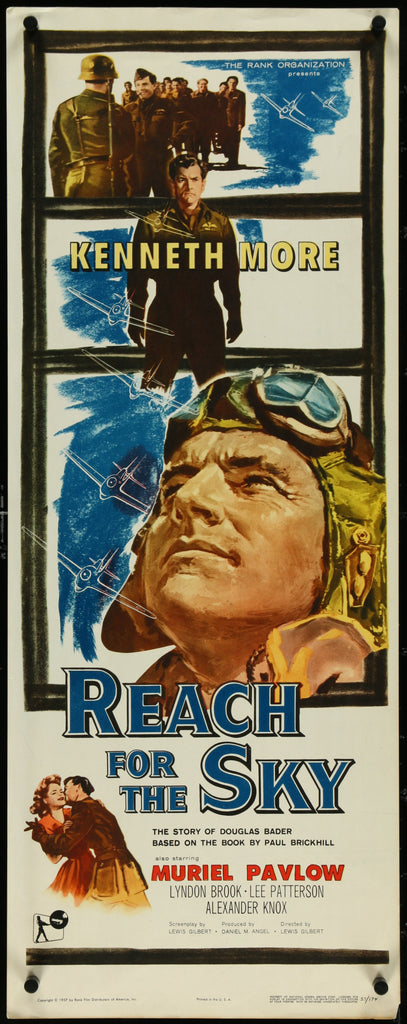
Reach for the Sky is an old-fashioned biopic, but then it was made with an audience that had lived through the conflict in mind. Even now, it is still a stirring tale of Douglas Bader, the man who wouldn’t let the loss of his legs stop him fighting in the Battle of Britain, escaping from a POW camp, and generally causing the Nazis a massive pain in the arse.
Much of the film’s enduring appeal is down to the charming performance of Kenneth More, whose warm presence was significantly different to the more prickly personality of the real-life flyer.
Patton (1970)
Some of the most successful biopics are ones that narrow the focus to just a few short years of a person’s life. Patton does just that, yet leaves us with a keen sense of who General George S. Patton was.
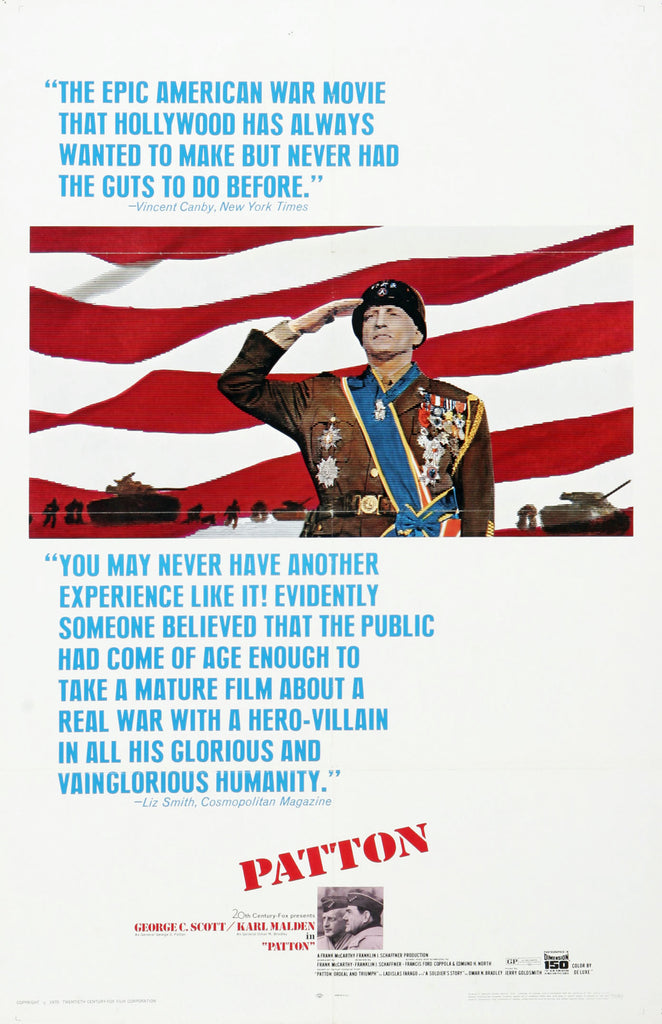
It also helps when you’ve got George C. Scott on such indomitable Oscar-winning form - famously, he rejected his prize because he disagreed with the notion of acting competitions. Scott fully embodies the cantankerous military genius, although his gruff voice is very different to the real Patton’s nasal twang. He totally dominates a film with a cast of hundreds, which is the screenwriter’s intent - those were the days when great generals competed on the battlefield wielding whole armies as their weapon. Even during the big battle scenes, the focus is on Patton and his reactions as he views the action from afar.
The screenplay, by Francis Ford Coppola and Edmund North, teases out many of the General’s contradictions, such as the fact that Patton was a devoted Christian who also believed strongly in reincarnation, which is a powerful and enigmatic theme that runs through the film. It is emphasised by Jerry Goldsmith’s innovative score, which uses a haunting trumpet motif to suggest that Patton’s past glories from previous lives are calling to him across the centuries.
The Elephant Man (1980)
In one of the most dazzling cinematic left turns ever, David Lynch followed up his nightmarish debut Eraserhead with The Elephant Man, a painfully moving portrait of John Merrick, the tragic 19th century figure who suffered from severe deformities and was held in a freak show before he was rescued and introduced into Victorian high society.
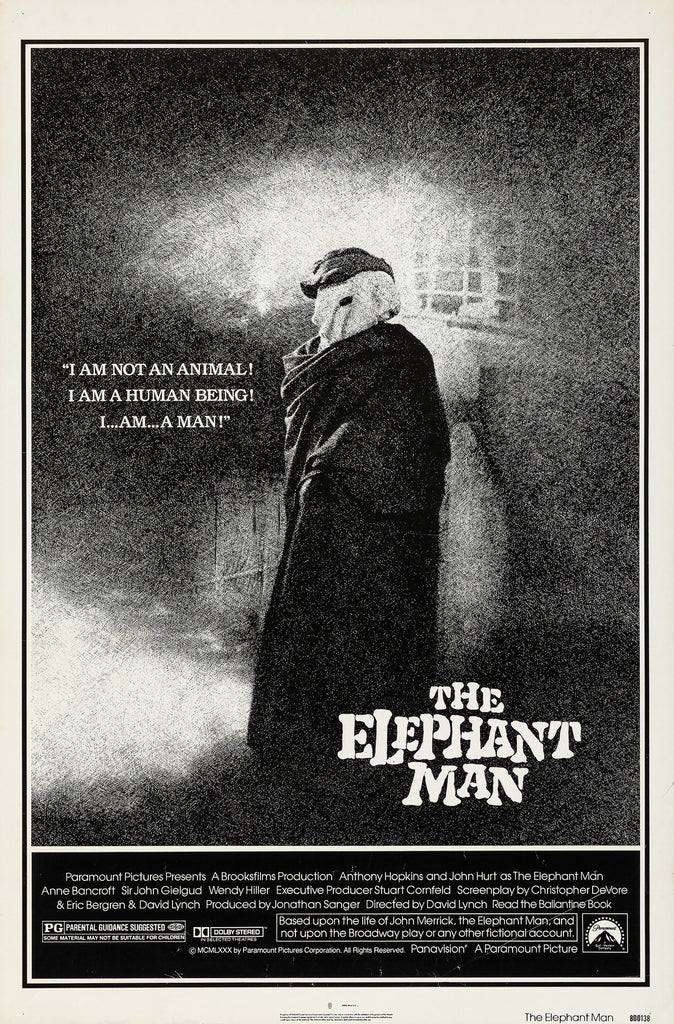
I know most people prefer Lynch’s weird ones, but this movie really showcases what a wonderfully lucid storyteller he is. The director mostly discards his trademark surreal touches to tell the tale straight, aided by the wonderful black and white photography from Freddie Francis, and strong lead performances from John Hurt as Merrick and Anthony Hopkins as his doctor and saviour Frederick Treves.
The Elephant Man was nominated for eight Oscars including Best Picture, Director, and Actor for Hurt, and would have surely won a few if it wasn’t up against another black and white masterpiece, Raging Bull… which you’ll note hasn’t made my list!
Gandhi (1982)
Part of coming to terms with your country’s imperial past is accepting the fact that there were many times when you were indeed the baddies, something I learned early on thanks to Richard Attenborough’s Gandhi.
It is a prestige picture in the best sense of the term, taking over three hours to chart the life of the Indian anti-colonialist leader who advocated non-violent methods as he helped his country gain independence from British rule. Attenborough makes every minute count; this is one biopic that never feels stretched by spanning a long period of time, starting in 1893 when a racist incident set a young Gandhi on his path and ending with his assassination over 50 years later.

Ben Kinglsey’s performance is crucial to the film. Born Krishna Banji, he changed his name in the ‘60s and only appeared in one film before Attenborough’s dream project, concentrating on his stage career after joining the Royal Shakespeare Company. In the role of Mahatma Gandhi, Kingley’s performance is as epic as the film itself, convincingly transforming from an idealistic young lawyer to an elderly political and spiritual leader.
Among the huge supporting cast, Edward Fox gives a chilling turn as Brigadier General Reginald Dyer, the unrepentant man who gave British troops the order to fire on peaceful protesters at the Jallianwala Bagh massacre, which is the film’s most angering set piece.
Gandhi brought Kingsley to international attention and he deservedly won the Oscar and several other major awards for his multi-faceted performance. Attenborough’s handsome film was praised for its historical accuracy and took home eight Academy Awards in total, including Best Picture and Best Director. It is now regarded as one of the best British films of all time, and is held in such high esteem that it was screened at an event commemorating the 70th anniversary of India’s Independence Day.
Amadeus (1984)
While most biopics tend to strive for historical accuracy, Milos Forman’s lavish film about the musical genius flaunts a narrative hook that is, in actual fact, utter bollocks.
But what a hook it is, and one of mythic proportions: That mediocre court composer Antonio Salieri (F. Murray Abraham) was so murderously jealous of the divine talents of Wolfgang Amadeus Mozart (Tom Hulce) that he devised a wicked scheme to kill him off.
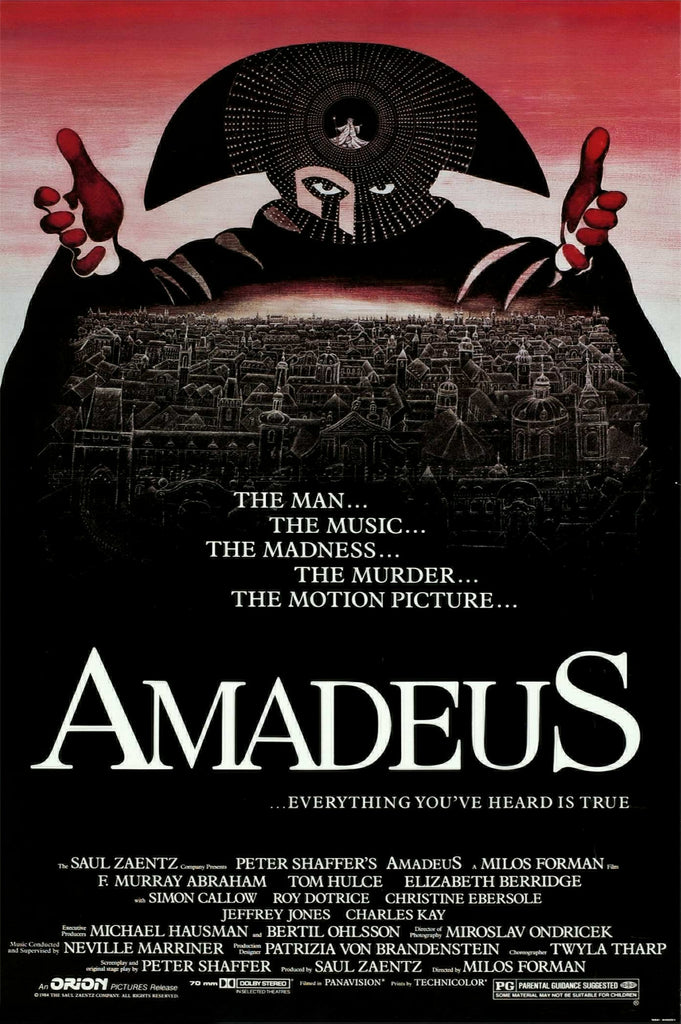
As such, Amadeus is as much about Salieri’s conflicting emotions and scheming as it is about Mozart himself. An elderly Salieri narrates the tale, which gives us some wonderful scenes such as the moment when the court composer performs his pompous “March of Welcome” for the young prodigy, who swaggers in and effortlessly improves it.
Both co-stars are marvellous in their roles. Hulce furnishes the maestro with an infectious, idiotic giggle that hints at his immaturity and impulsive nature. Abraham edges it with a captivating portrayal of a smug and courtly man who recognises Mozart’s God-given gifts but can’t bear the thought that they were bestowed on an oafish upstart rather than a pious man like himself. Both received Oscar nominations for Best Actor and, reflecting Abraham’s prominence in the film, the older actor took home the award.
Despite - or perhaps because - of its historical inaccuracies, Amadeus must go down as one of the most entertaining three hour biopics ever made. Would a straight-up re-telling of Mozart’s life capture the imagination as much? Maybe not, and you have to give kudos to a movie that got so many people listening to Mozart. The soundtrack sold over 6 million copies on its way to becoming one of the best-selling classical music albums of all time, and there are quite a few bangers on there.
Goodfellas (1990)
I get the feeling that Goodfellas is often overlooked as a biopic, probably because it has always been so busy receiving adulation as one of the greatest gangster movies ever made. But a biopic it is, a dramatisation of the life of mobster-turned-informant Henry Hill, adapted by Nicholas Pileggi from his own book, Wiseguy.

Hill is played by Ray Liotta, who only had two notable roles previously in Something Wild and Field of Dreams. He does such a charismatic job of leading us into the underworld of New York organised crime and, like him, we are seduced by it. He’s matched by Robert De Niro in a tightly focused role Jimmy Conway and Joe Pesci steals every scene he’s in as the volatile Tommy DeVito. Pesci won a Best Supporting Actor Oscar for his unforgettable performance.
Maybe another reason that Goodfellas doesn’t scan as a biopic is that it is so cinematic when most bios tend to be a little on the formulaic side. Martin Scorsese directs the hell out of the movie, grabbing us by the throat with that stunning cold open (“As far back as I can remember, I always wanted to be a gangster.”) and never letting go until we leave Hill to live the rest of his life as a “schnook” in witness protection.
Some have criticised Goodfellas because Hill doesn’t have much of an arc - he loves the life of the gangster and is totally unrepentant, only getting out of the life to save his own skin. But that doesn’t really matter when you’re watching it. It’s one of those movies that, if it’s on telly while you’re channel-hopping, you are in for the rest of the duration.
Thirty Two Short Films About Glenn Gould (1993)
I had never heard of renowned concert pianist Glenn Goud before I found Thirty Two Short Films About Glenn Gould, but it instantly became my favourite biopic.
Co-writer and director François Girard boldly abandons traditional narrative and chronology, compiling 31 short pieces (the 32nd is the end credits) that coalesce and give a true sense of who this complex and gifted man was.
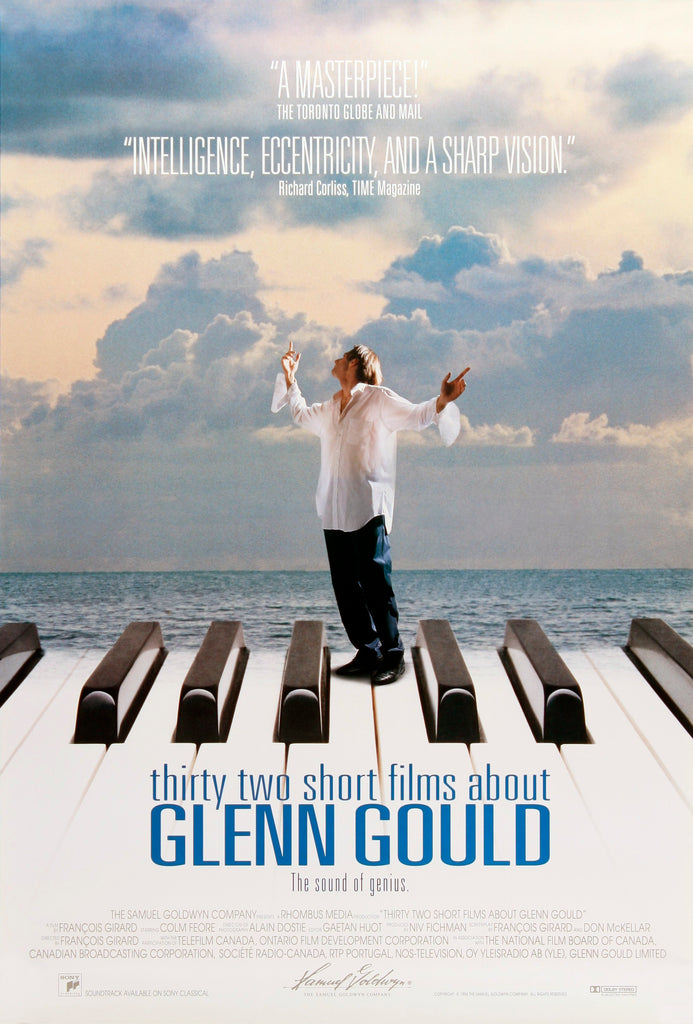
The films vary wildly in tone and medium. Some are just a talking head interview with people who knew Gould; others are animated sequences set to the pianist’s recordings; and the more conventional scenes give us an insight into his character and eccentricities. Colm Feore is wonderful in the role, playing Gould as a genial windbag who delights in the sound of his own voice.
That all might sound a bit pretentious but don’t worry. The film carries itself with a gently humorous touch, summed up by Girard’s decision to never actually show us Gould playing the piano. We see the interior of his instrument as he plays his final concert at the age of 32, and we see his skeleton shot in X-ray hammering out a tune, but never the full-bodied man himself at the keys.
In the end, as we are told that Gould’s music has traveled into interstellar space on the Voyager probes and the pianist wanders away across an icy wasteland, we’re left to contemplate a film that has given such an intimate portrait of the genius, and also to ponder the vast galaxy of a man's personality.
Immortal Beloved (1994)
I might just be the only person in the world who loves Immortal Beloved, probably because it came along at a time when I was really, really into the music of Ludwig van Beethoven. Bernard Rose’s stodgy biopic is hugely overshadowed by the Oscar-winning triumph of Amadeus a decade earlier, and his screenplay strives for a similar kind of mystery to its more illustrious forebear.
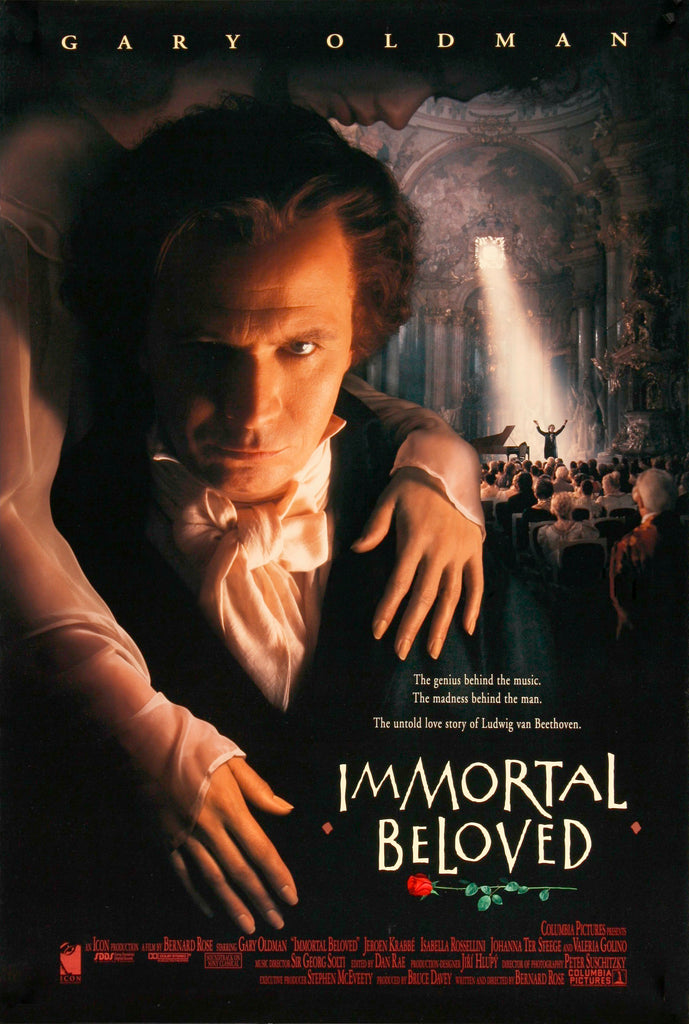
Opening on a stormy night as Beethoven (Gary Oldman) draws his final breath, we go into flashback mode as his friend Felix Schindler (Jeroen Krabbe) tries to figure out who is the “immortal beloved” mentioned in the late maestro’s will as the sole beneficiary.
Released the same year as Oldman warmed up for killing a girl’s whole family by listening to Beethoven in Leon: The Professional, the British actor is well-cast as the gloomy genius. He ploughs a lonely furrow in a film otherwise populated by rather bland performances, and the movie lacks the pizzazz and humour of Amadeus.
Luckily, the music is the star of the show and provides two wonderful graces notes: A moving scene of Beethoven, as his hearing fades, pressing his ear to the piano while playing “Moonlight Sonata”, and an exhilarating “Ode to Joy” flashback sequence as he conducts his 9th Symphony.
Ed Wood (1994)
I feel like I’ve talked a lot about Ed Wood on the blog, such as in my recent Tim Burton Top 10. So I won’t get into it too much again here, apart from to say Burton’s affectionate biopic of B-movie auteur Edward D. Wood Jr (played wonderfully by Johnny Depp) is a thing of pure joy.
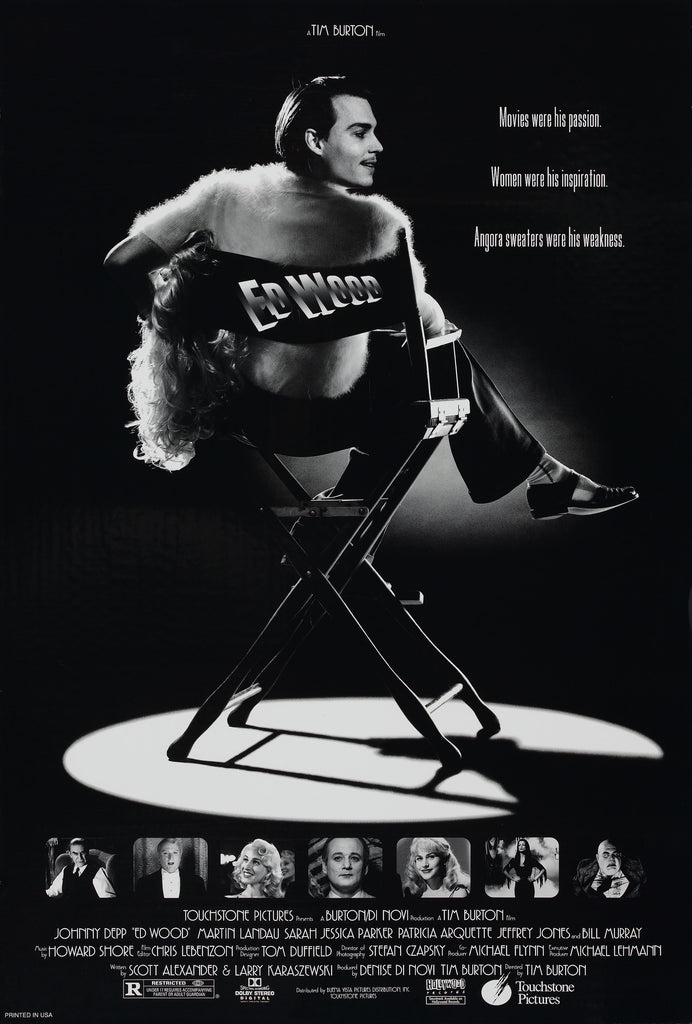
Bronson (2008)
Tom Hardy loves playing a hard nut, and his breakout role in Bronson was playing just about the hardest nut of them all. The actor spent time visiting Michael Peterson, a.k.a Charles Bronson, a.k.a. Britain’s most violent prisoner, to capture his mannerisms. He also beefed up for the role, which is an intense and theatrical performance from Hardy. The actor finds a surprising amount of nuance in a man who got banged up for seven years and brawled his way up to life inside, many of them in solitary confinement.
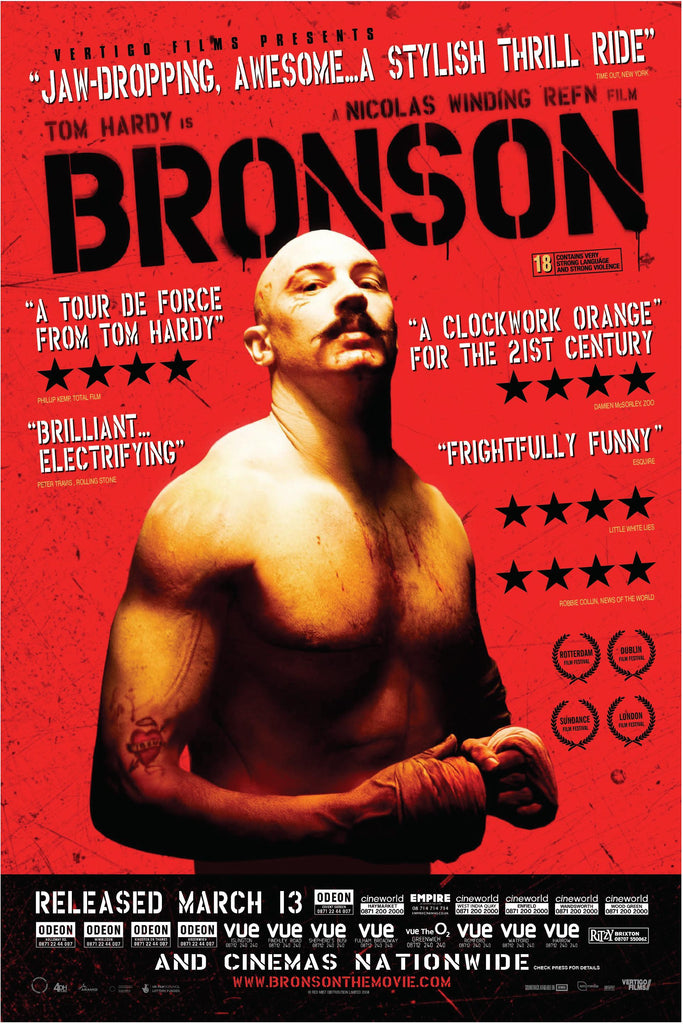
Bronson was Nicolas Winding Refn’s English-language debut, and the Danish director helms the film with copious amounts of style, clearly taking his cue from Stanley Kubrick. The connection is completed with classical music on the soundtrack, evoking A Clockwork Orange and 2001: A Space Odyssey, and crystal-clear cinematography from Larry Smith, who worked on Eyes Wide Shut.
The film is Hardy’s show, though, who revels in playing a man who has turned violence and incarceration into a peculiar form of performance art. This is emphasised by the fantasy sequences showing Bronson on a theatre stage, and begs the question: If Charlie Bronson has spent so long in solitary then who, exactly, is his audience? Ultimately, it’s a bit of a pointless crusade, which doesn’t escape Refn or Hardy. Just don’t tell Charles Bronson I said that.
I, Tonya (2017)
Margot Robbie really showed off her acting chops in I, Tonya, roughing it up to play “redneck” figure skater Tonya Harding in this boisterous black comedy. Craig Gillespie’s movie follows her career from a prodigiously talented young girl driven by her salty chain-smoking mother (Oscar-winning Alison Janney), through to the infamous 1994 scandal when Harding was implicated in the plot to kneecap her rival, Nancy Kerrigan.
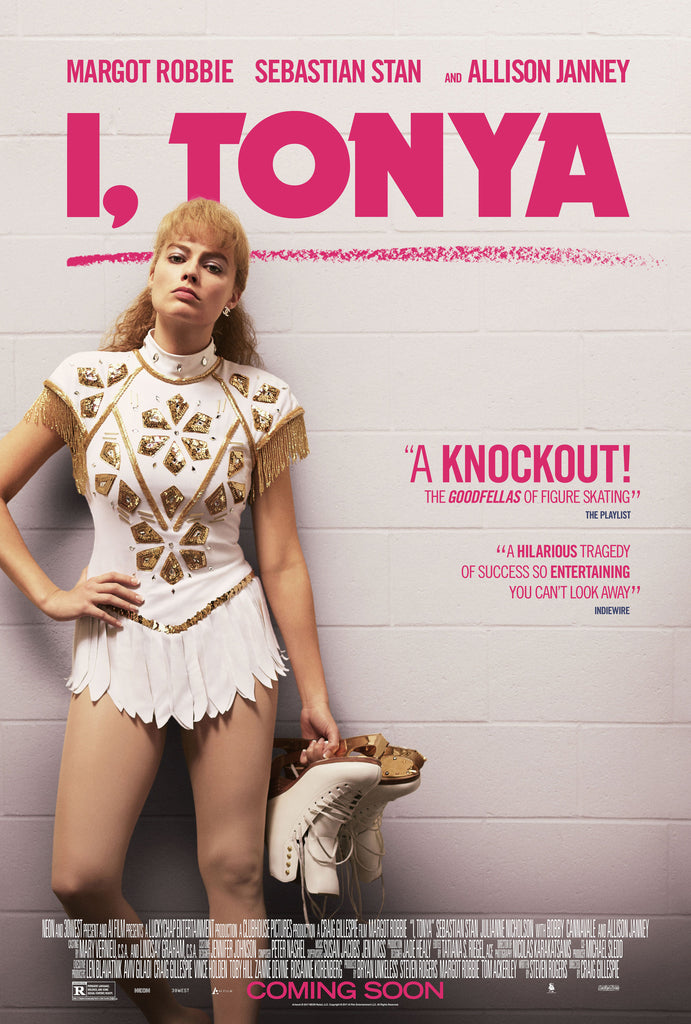
Gillespie borrows plenty of tricks from Martin Scorsese, which earned the movie the nickname “Goodfellas on ice.” It’s very derivative of the mob classic but that isn’t necessarily a bad thing, employing dynamic editing, freeze frames, multiple and conflicting testimonies from the characters, fourth wall-breaking asides, and an energetic rock soundtrack. Gillespie takes that energy to the ice, too, really putting us in the action as Harding performs her pulse-racing routines.
The film drew criticism for making Harding a sympathetic character, but Robbie does some of her best work to date portraying a flint-edged but emotionally damaged competitor whose hard-knocks upbringing compelled her to overcome her working-class background and briefly dominate the snooty world of figure skating. She received her first Academy Award nomination for the performance, and Paul Walter Hauser is also a hoot in his breakout role as a dim-witted fantasist who becomes Harding’s bodyguard and accomplice in the Kerrigan attack.
Dolemite Is My Name (2019)
Eddie Murphy has rarely been more charming than playing comedian and filmmaker Rudy Ray Moore, an exuberant chancer who went from reciting lewd rhymes in comedy clubs to using the money from recordings to fund his very own Blaxploitation action-adventure, Dolemite.
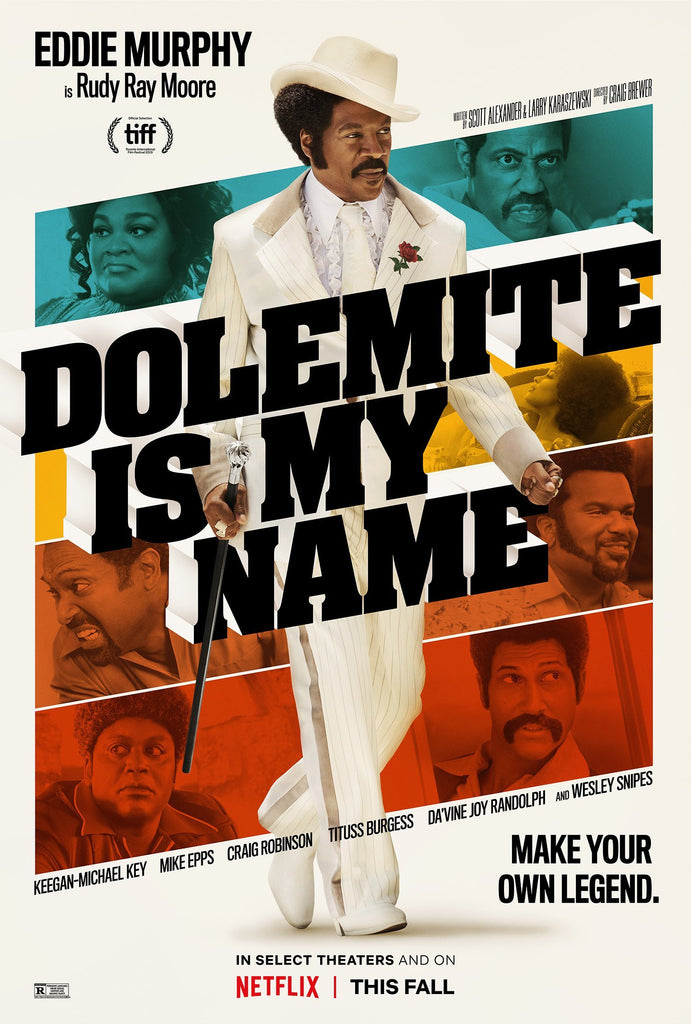
A Rudy Ray Moore biopic was a dream project for Murphy and Dolemite Is My Name gave him his best role for many years. He cultivated a beer gut and studied Moore’s vocal rhythms and mannerisms for the part, and Murphy’s enthusiasm for his subject is infectious. It also helps that he is supported by a wonderful ensemble including Wesley Snipes as an effete and pompous director who feels that Moore’s movie is several thousand leagues beneath him.
The movie’s extended showpiece is the creaky low-budget production of Dolemite with Moore taking centre stage as the kung-fu kicking ladies man at the heart of the adventure. It comes across as a Blaxploitation version of Ed Wood, which is no coincidence: both films were written by the duo of Scott Alexander and Larry Karaszewski. The similarities certainly aren’t a bad thing, as the clear affection for the characters from everyone involved shines through brightly.
Rocketman (2019)
This might upset some fans, but I’ll come right out and say it: Bohemian Rhapsody was one of the worst Best Picture nominees in recent memory, if not the entire history of the Academy Awards. That the monstrosity took home the Best Editing gong was a particular travesty.
It probably didn’t help that the film’s original director, Bryan Singer, was fired midway through the production. Dexter Fletcher (Sunshine on Leith) was parachuted in to complete the picture, and he no doubt did his best to polish the turd.
Fletcher fared much better with Rocketman, a far more enjoyable and accomplished musical biopic that sadly received far less fanfare, box office success, and award nominations than its shonky forebear.
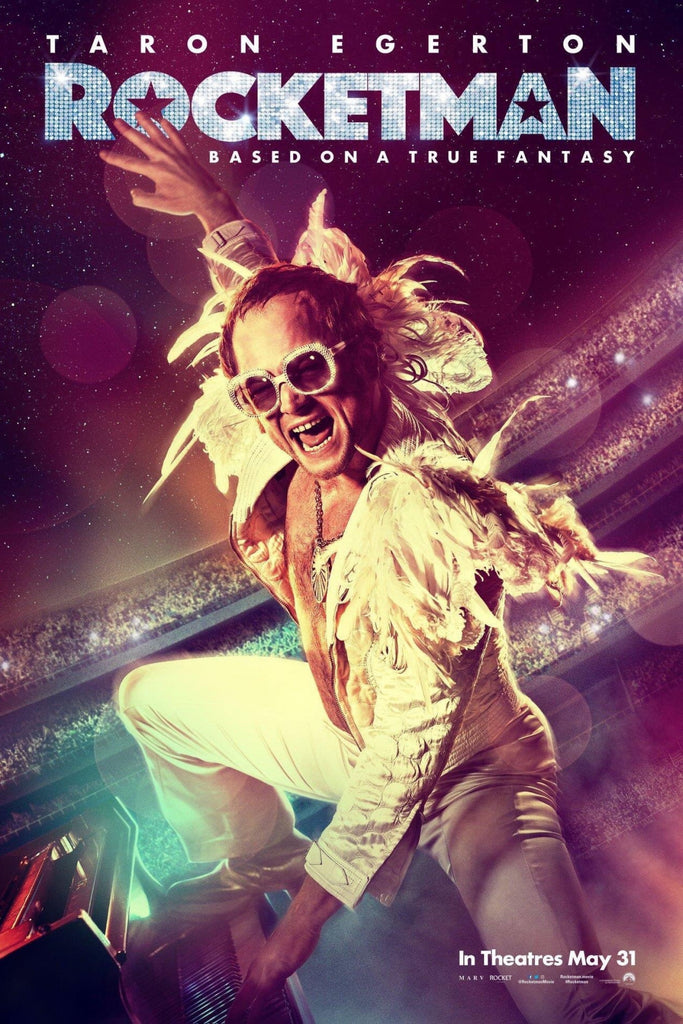
While the film is strictly speaking a jukebox musical, it stands out from similar movies thanks to imaginative arrangements of the Elton John classics, sometimes putting the lyrics in the mouths of other characters to tell the story. As you’d expect for a movie about such a flamboyant personality, it is campy, spectacular, and even euphoric at times.
Narratively, there isn’t much to Rocketman other than Elton gets famous, gets high and disillusioned, then gets himself clean again. It’s still compelling stuff thanks to Taron Egerton’s heartfelt performance and his likeable chemistry with Jamie Bell, who plays the pop maestro’s lifelong friend and lyricist Bernie Taupin.
Unlike Bohemian Rhapsody, which retconned history to punish Freddie Mercury for his homosexuality, Fletcher’s film also has the courage to let Elton John be gay without any apology or straight-washing. Rocketman is a modern camp masterpiece.
So there you have it, some of my favourite biopics. Do you agree with my choices? What are your picks? Let us know!




